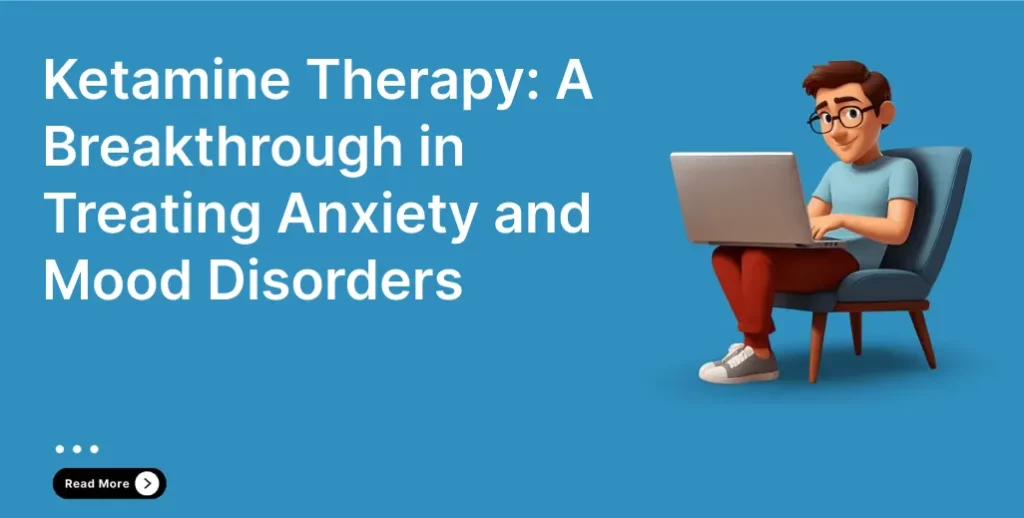

Anxiety affects millions of people every day, often resisting conventional treatments like antidepressants or talk therapy. For those struggling with constant worry, panic, or fear, the search for effective relief can feel endless. But new research is shedding light on an innovative solution: ketamine therapy.
By targeting the brain’s glutamate system instead of serotonin, ketamine acts rapidly to restore balance and encourage new neural connections. The result? Improved mood, reduced anxiety, and renewed hope for those who have tried everything else. To learn how this approach works, explore the science behind ketamine therapy for anxiety and why it’s transforming mental health treatment.
Traditional antidepressants can take weeks to show results. Ketamine, on the other hand, often begins working within hours. It stimulates neuroplasticity, the brain’s ability to form new, healthier pathways, helping individuals break free from cycles of fear and emotional distress.
Patients frequently report feeling mentally “reset” after treatment, gaining a sense of calm and clarity they haven’t felt in years. This process doesn’t just mask symptoms; it promotes lasting change by rewiring how the brain responds to stress and emotion.
While ketamine has powerful biological effects, emotional integration is equally vital. In ketamine therapy, medical treatment is combined with guided psychotherapy to help patients process insights and emotions that surface during sessions.
This integrative model helps individuals connect the dots between their thoughts, feelings, and healing, ensuring that improvements last long after the medication’s effects wear off. By blending neuroscience with emotional guidance, ketamine-assisted therapy offers a holistic path toward recovery.
Though anxiety treatment is one of the most common uses, ketamine is showing promise in addressing other complex conditions. Patients undergoing ketamine treatment for OCD have reported reductions in intrusive thoughts and compulsive behaviors, while those with mood fluctuations are finding relief through ketamine for bipolar, an emerging area of study that may help stabilize emotional extremes.
This growing body of research underscores ketamine’s versatility and its potential to reshape how clinicians approach treatment-resistant disorders.
As with any advanced mental health treatment, professional guidance is essential. Ketamine therapy should always be administered in a controlled clinical setting under medical supervision. Providers monitor vital signs, dosage, and response to ensure safety and efficacy throughout the process.
Clinics like Village TMS offering ketamine for bipolar, anxiety, or OCD often include pre-treatment evaluations and post-session integration to help patients reflect and stabilize. This comprehensive care approach ensures that each session supports both the mind and body, minimizing risks while maximizing results.
As treatments like TMS and ketamine therapy become more widely available, patients now have greater access to innovative options for depression, anxiety, and other mental health conditions. Searching for TMS or ketamine providers near you is the first step toward discovering clinics that offer personalized, medically supervised care.
When evaluating providers, consider factors such as clinical experience, treatment protocols, and ongoing patient support. Many reputable centers, like Village TMS, combine compassionate care with advanced technology to ensure safety, comfort, and lasting results.
Local access also makes it easier to stay consistent with your treatment plan, attend follow-up sessions, and build a supportive therapeutic relationship close to home.
Ketamine represents more than just another treatment, it’s a paradigm shift in how we view healing. By harnessing the brain’s natural ability to rebuild itself, ketamine therapy helps patients move beyond symptom management toward long-term emotional resilience.
With its combination of speed, safety, and scientific validation, this therapy offers new hope for individuals who’ve been told there were no other options. As the field of psychiatry continues to evolve, one thing is clear: the future of mental health care lies in innovation, compassion, and personalized solutions that work.







We use cookies to improve your experience on our site. By using our site, you consent to cookies.
Manage your cookie preferences below:
Essential cookies enable basic functions and are necessary for the proper function of the website.
Google reCAPTCHA helps protect websites from spam and abuse by verifying user interactions through challenges.
Google Tag Manager simplifies the management of marketing tags on your website without code changes.
Statistics cookies collect information anonymously. This information helps us understand how visitors use our website.
SourceBuster is used by WooCommerce for order attribution based on user source.
Marketing cookies are used to follow visitors to websites. The intention is to show ads that are relevant and engaging to the individual user.
Facebook Pixel is a web analytics service that tracks and reports website traffic.
Service URL: www.facebook.com (opens in a new window)
You can find more information in our Cookie Policy and Privacy Notice.